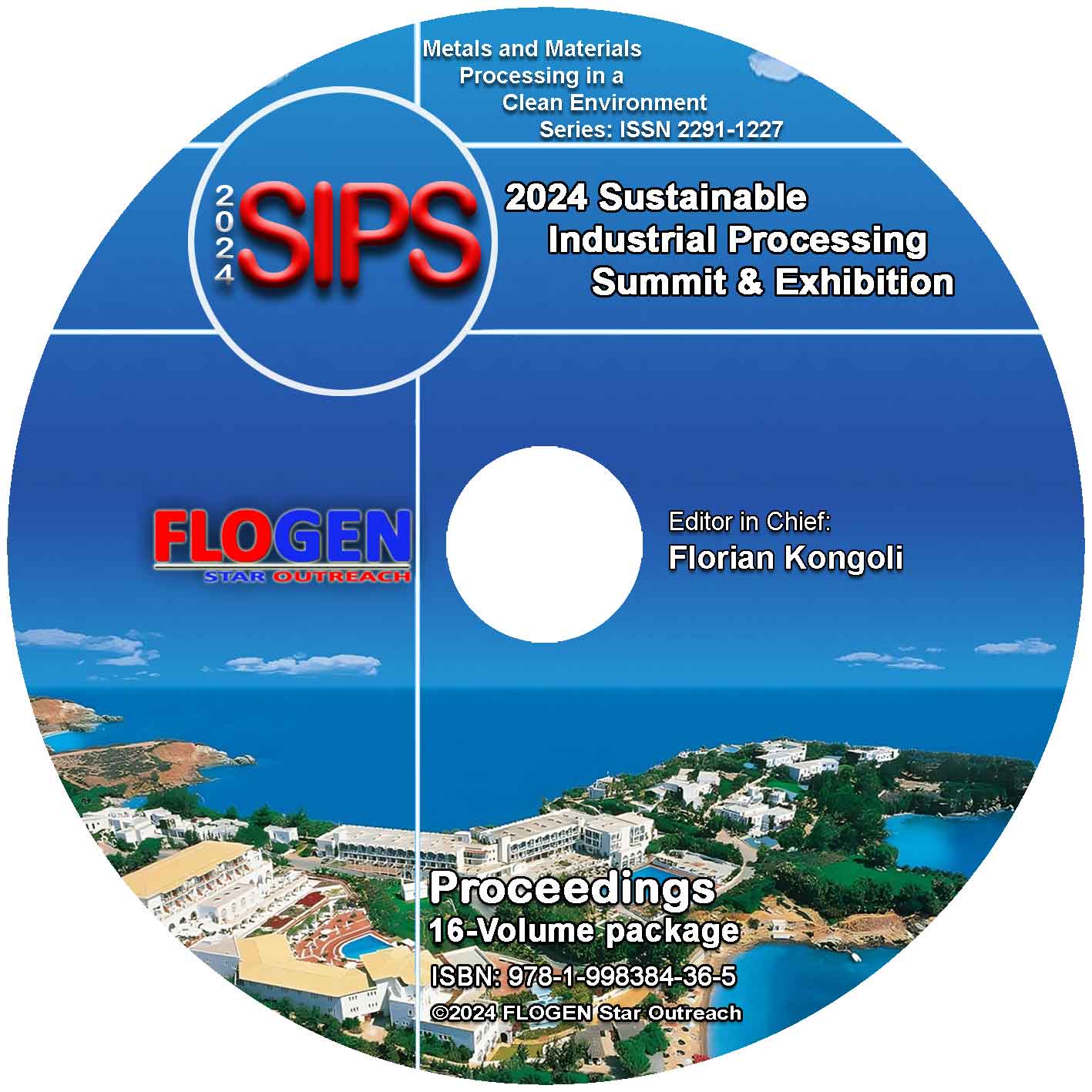2024 - Sustainable Industrial Processing Summit
SIPS 2024 Volume 10. Ross Intl. Symp / Geochemistry
| Editors: | F. Kongoli, M. Alvaro, G. Artioli, M. Asta, S. Hayun, A. Navrotsky, R. Riedel, S. Webb |
| Publisher: | Flogen Star OUTREACH |
| Publication Year: | 2024 |
| Pages: | 170 pages |
| ISBN: | 978-1-998384-22-8 (CD) |
| ISSN: | 2291-1227 (Metals and Materials Processing in a Clean Environment Series) |

CD shopping page
CAN UNKNOWNS BE PREDICTED QUANTITATIVELY?
Zi-Kui Liu1;1PENN STATE UNIV., University Park, United States;
Type of Paper: Keynote
Id Paper: 503
Topic: 67
Abstract:
The first and second laws of thermodynamics are the fundamental laws that govern the states of a system, large or small, and its interactions with its surroundings. The changes of states inside the system, i.e., internal processes, are guided by the entropy change of each internal process. The recently termed zentropy theory stipulates that the entropy of a system is the sum of statistical entropy among all conceivable configurations of the system, i.e., the Gibbs entropy or Shannon information entropy, and the statistical average of entropy of each configuration, i.e., the quantum entropy (https://doi.org/10.1088/1361-648X/ad4762). It is demonstrated that when the quantum entropy of each configuration can be predicted by quantum mechanics, the properties of the system can be quantitively predicted without any additional models and fitted model parameters, showing remarkable agreement with experimental observations, including singularity at critical points. For complex systems such as biology, society, planet, and galaxy, the properties of configurations in them could not be predicted by quantum mechanics, it is proposed to learn the properties of each configuration from observations using the zentropy theory. It is anticipated that based on the zentropy theory, a science-based foundation model for artificial intelligence in the flattened configuration space can be developed so their properties can be predicted including emergent behaviors and instability with singularity so concerted efforts can be organized to utilize them or mitigate them.